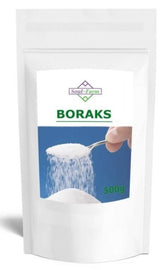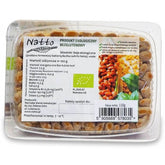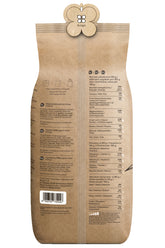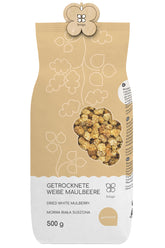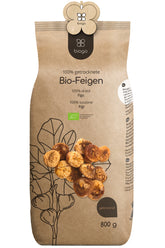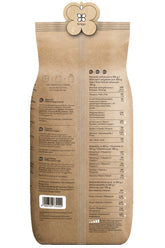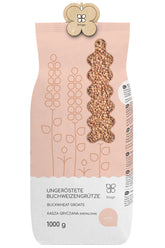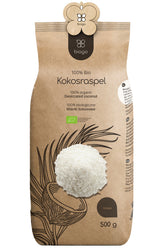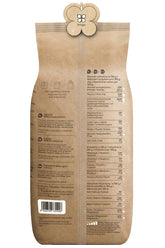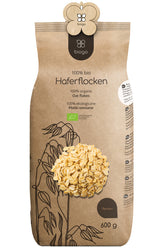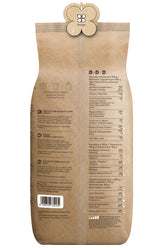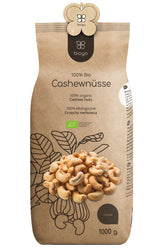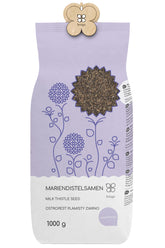13 easy ways to reduce the plastic waste around us
Plastic bags, garbage bags, water bottles, lunch boxes, plastic-wrapped creams, shampoos, detergents, toothbrushes , polyester clothing - plastic is so ubiquitous in everyday objects around us that we often don't even notice it, or don't even know how to give it up.
In recent decades, our actions and lifestyles have led to plastic waste becoming a global problem for our civilization. Microplastic particles are found in water, animals, and even Arctic ice. According to the United Nations, tens of thousands of tons of PET bottles are thrown away in Poland every year, and it can take about 500 years for a plastic bottle to decompose.
Although we're already accustomed to the fact that plastic is everywhere, even in clothing and cosmetics, we should try to limit its daily use. You can effectively reduce its misuse by incorporating a few simple rules into your daily habits. In addition to reducing plastic in our daily lives, it can also be successfully recycled.
13 of the simplest and most basic ways to reduce plastic
- Do not use disposable plastic bags, take your own bag and bags for loose products, vegetables and fruit when shopping,
- Choose food storage boxes made of glass,
- When you go out, take a thermos flask or a thermos mug with you to drink your favorite coffee – then you avoid buying coffee in a disposable plastic cup,
- Avoid plastic-bottled water – Avoid plastic-bottled water – in most cities, tap water is safe to drink. However, if you have doubts or reservations, consider investing in a pitcher or bottle with a replaceable filter.
- Avoid plastic straws and disposable cutlery, cups and plates made of plastic or use paper or reusable items,
- Stop using sponges for washing dishes—they also contain plastic fibers that end up in the environment. Cotton, flannel, or terry cloth are best options instead.
- Instead of plastic toothbrushes, you can choose bamboo toothbrushes and instead of plastic cotton swabs, you can choose paper ones.
- Do not buy vegetables and fruit packaged in plastic bags or trays.
- Instead of food foil, you can also choose wax foil .
- Instead of cosmetics in plastic bottles, you can also use shampoo , soap , or balm bars. These are products packaged in biodegradable cardboard.
- Avoid plastic earrings, bracelets, and necklaces. Those made of precious metals may be more expensive, but they're also more durable, timeless, and last much longer.
- Avoid using cleaning products from the drugstore – this way you avoid the creation of plastic waste and for cleaning household surfaces a little water, baking soda and vinegar are enough,
- Limit the purchase of plastic toys or choose toys made from natural materials.
These are just a few ways to reduce the use of plastic in everyday life; there are certainly many more ideas. Let's not panic if we can't avoid buying a plastic item—it's definitely better for our child to have a reusable plastic water bottle at school than, say, a glass one. However, let's make sure we buy plastic wisely, sensibly, and thoughtfully. If we already have plastic items at home, let's take care of them so they last as long as possible instead of ending up in landfills.
THE PUBLISHER'S CHOICE
Almonds 1 kg BIOGO
- €11,69
€13,75- €11,69
- Unit price
- / per
Walnuts 800 g BIOGO
- €8,65
€10,18- €8,65
- Unit price
- / per
Dried organic mango 400 g BIOGO
- €10,99
- €10,99
- Unit price
- / per
Dried White Mulberries 500 g ORGANIC
- €5,84
€6,87- €5,84
- Unit price
- / per
Dried organic figs 800 g BIOGO
- €30,12
- €30,12
- Unit price
- / per
Unpeeled buckwheat groats 1 kg BIOGO
- €2,81
€3,31- €2,81
- Unit price
- / per
Organic coconut flakes 500 g BIOGO
- €10,07
- €10,07
- Unit price
- / per
Organic oat flakes 600 g BIOGO
- €3,77
- €3,77
- Unit price
- / per
Organic cashew nuts 1 kg BIOGO
- €19,99
- €19,99
- Unit price
- / per
Milk thistle seeds 1 kg BIOGO
- €3,99
- €3,99
- Unit price
- / per






